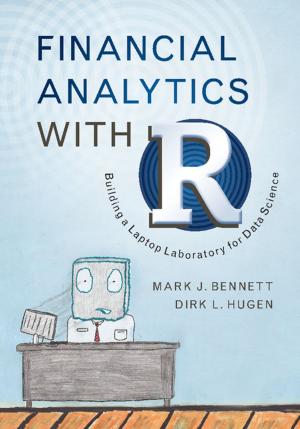Technical Ekphrasis in Greek and Roman Science and Literature
The Written Machine between Alexandria and Rome
Nonfiction, Religion & Spirituality, Philosophy, Ancient, Fiction & Literature, Poetry, Literary Theory & Criticism| Author: | Courtney Roby | ISBN: | 9781316530528 |
| Publisher: | Cambridge University Press | Publication: | February 24, 2016 |
| Imprint: | Cambridge University Press | Language: | English |
| Author: | Courtney Roby |
| ISBN: | 9781316530528 |
| Publisher: | Cambridge University Press |
| Publication: | February 24, 2016 |
| Imprint: | Cambridge University Press |
| Language: | English |
Ekphrasis is familiar as a rhetorical tool for inducing enargeia, the vivid sense that a reader or listener is actually in the presence of the objects described. This book focuses on the ekphrastic techniques used in ancient Greek and Roman literature to describe technological artifacts. Since the literary discourse on technology extended beyond technical texts, this book explores 'technical ekphrasis' in a wide range of genres, including history, poetry, and philosophy as well as mechanical, scientific, and mathematical works. Technical authors like Philo of Byzantium, Vitruvius, Hero of Alexandria, and Claudius Ptolemy are put into dialogue with close contemporaries in other genres, like Diodorus Siculus, Cicero, Ovid, and Aelius Theon. The treatment of 'technical ekphrasis' here covers the techniques of description, the interaction of verbal and visual elements, the role of instructions, and the balance between describing the artifact's material qualities and the other bodies of knowledge it evokes.
Ekphrasis is familiar as a rhetorical tool for inducing enargeia, the vivid sense that a reader or listener is actually in the presence of the objects described. This book focuses on the ekphrastic techniques used in ancient Greek and Roman literature to describe technological artifacts. Since the literary discourse on technology extended beyond technical texts, this book explores 'technical ekphrasis' in a wide range of genres, including history, poetry, and philosophy as well as mechanical, scientific, and mathematical works. Technical authors like Philo of Byzantium, Vitruvius, Hero of Alexandria, and Claudius Ptolemy are put into dialogue with close contemporaries in other genres, like Diodorus Siculus, Cicero, Ovid, and Aelius Theon. The treatment of 'technical ekphrasis' here covers the techniques of description, the interaction of verbal and visual elements, the role of instructions, and the balance between describing the artifact's material qualities and the other bodies of knowledge it evokes.















